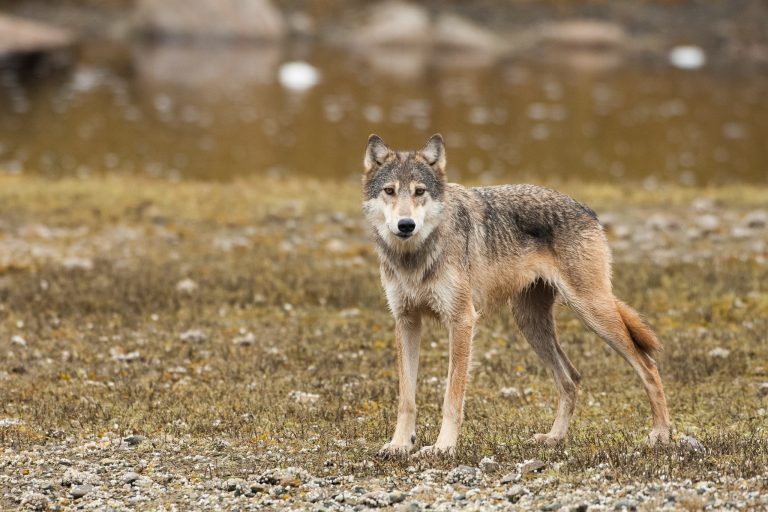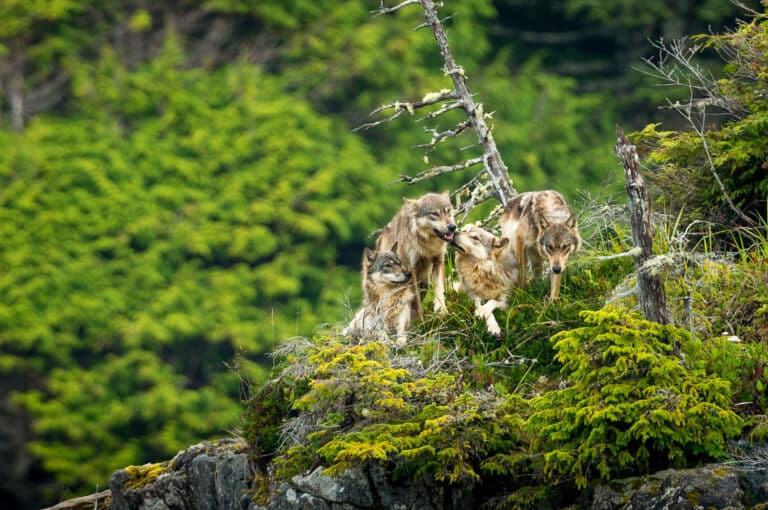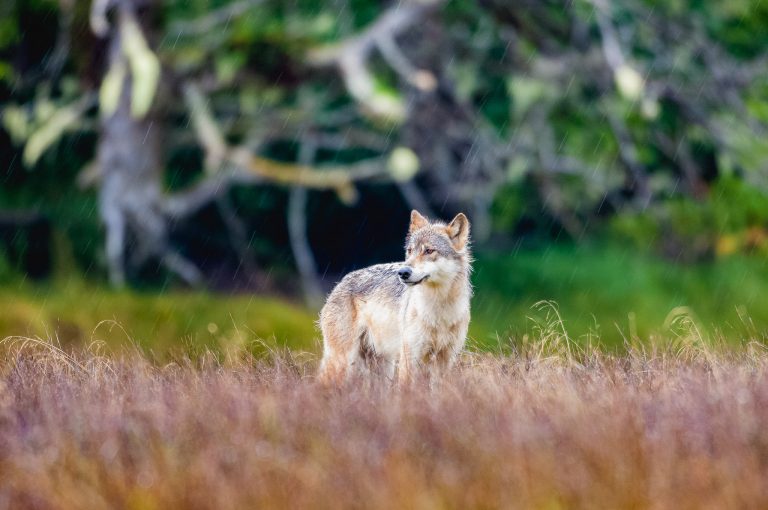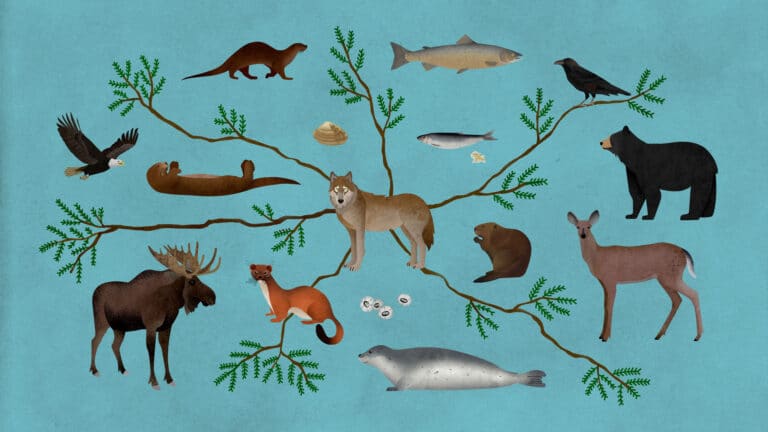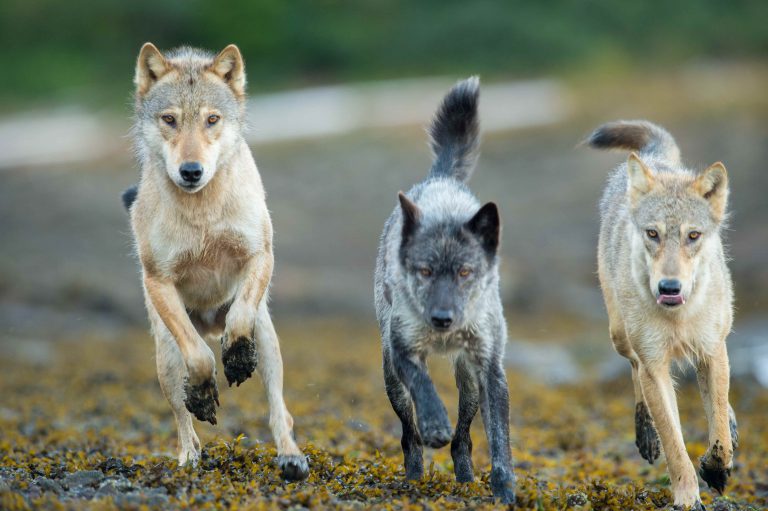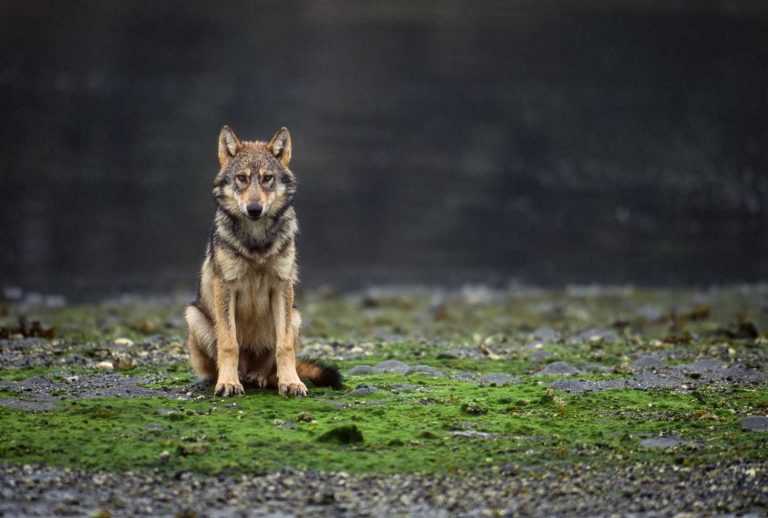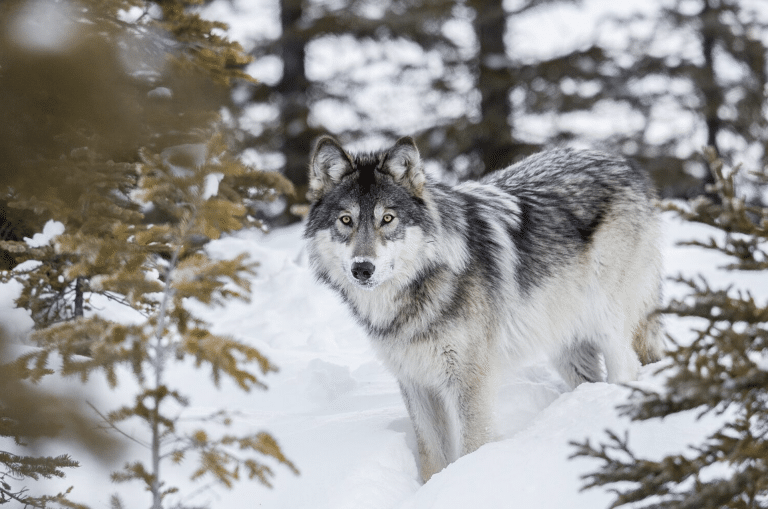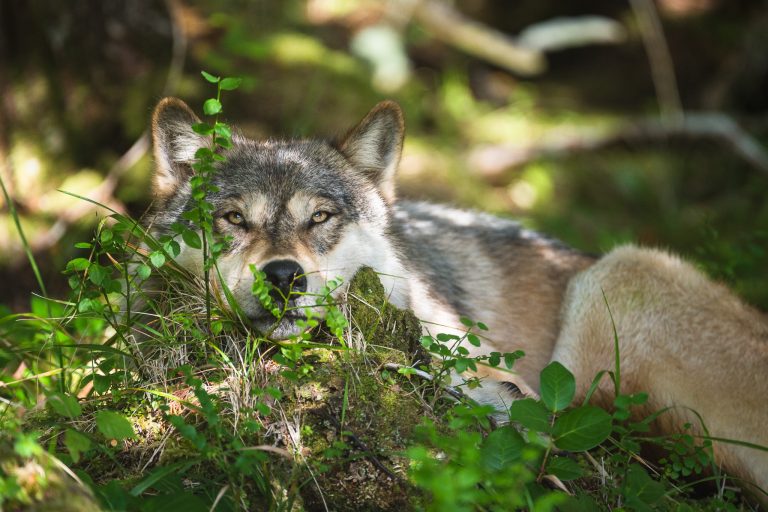Contact Us
Email: info@pacificwild.org
Phone: 250-380-0547
Main Office
1529 Amelia Street, Victoria, BC
Lək̓ʷəŋən Territory
V8W 2K1
Field Office
P.O. Box 26
Denny Island, BC
Haíɫzaqv Territory
V0T 1B0
Hopeful news for our oceans! After much hard work, Nuu-chah-nulth Tribal Council, the Council of the Haida Nation, Pacheedaht First Nation, Quatsino First Nation and the Canadian Government have established Tang.ɢ̱wan – ḥačxwiqak – Tsig̱is (ThT)– a new marine protected area off the coast of British Columbia. This collaboratively managed initiative aims to protect the unique ecosystems of ancient underwater volcanoes, seamounts, and hydrothermal vents. Let`s come together to applaud this important step towards safeguarding the health of our oceans. These delicate ecosystems are slow growing and are incredibly sensitive to disruptions caused by industrial activities. This rare marine ecosystem will now be conserved for generations.
#MarineProtection #PacificWild #MarineConservation #SaveOurOcean #ProtectMarineLife #ConservationEfforts
0
0

0
0
In March 2020, Takaya, a lone wolf inhabiting Discovery Island, was shot and killed by a hunter near Shawnigan Lake following his relocation to Vancouver Island. His death sparked outrage and deep sorrow among the global community that had gathered around him since his appearance in 2012. Today, hunting outfitter Terminus Mountain Outfitters, is using Takaya’s image without consent to advertise the trophy hunting of wolves in British Columbia (B.C.).
“It’s an absolute travesty that an image of Takaya, a wolf that has inspired people around the world, would be used to promote and advertise the senseless and cruel bloodsport of hunting wolves. Takaya became a symbol of compassion and tolerance between wolves and people. Takaya represents the patience, curiosity and intelligence of all wolves, but mostly stands as an icon of freedom.” – Karen & Ian McAllister, co-founders of Pacific Wild
The B.C. government allows wolves to be legally hunted and trapped with little regulatory oversight in place. The majority of the nine hunting regions in B.C. have no bag limit for wolves, nor do they require data collection or harvest reporting by hunters and trappers as a condition of license. Estimates for the number of wolves hunted are acquired through random selection surveys. These lax regulations and reporting requirements for the hunting of a keystone species in our province are extremely concerning and unacceptable.
The provincial government is already heavily invested in the eradication of wolves in an ostensible effort to increase declining caribou populations via culling programs. Between hunting and provincially mandated predator reduction efforts, at least 8,084 wolves have been killed in the last nine years in B.C.. The median population estimate of wolves in the province stands at roughly 8,500.
Wild wolves deserve better.
📸 @takayalonewolf
#SaveBCWolves #Wolf #Wolves
311
11

311
11
Fun fact! The humpback whale, BCX1665, our staff documented solo bubble-net feeding last fall in the Great Bear Sea was re-sighted on Thursday March 02, 2023 in Nayarit, Mexico! This sighting is the first time it has been recorded on @happywhale_official since our staff documented it in the fall.
BCX1665 was first documented in 2016 by our friends at @bcwhales 🐋 in the Great Bear Sea and has been recorded there at least four times since in 2016, 2019 and 2023. When this whale is not spending time feeding in British Columbia, it is known to migrate to Mexico.
Humpback whales in Canadian waters are classified as one population by DFO; however, when these same whales pass into U.S. waters, they are managed as different populations (since they generally have different breeding grounds) by NOAA. Under U.S. management BCX1665 is a member of a Threatened population unit.
We are wishing BCX1665 a safe migration north and will be keeping our eyes open for this individual in the Great Bear Sea this year! You can help participate in citizen science by logging your sightings on sites like happywhale.com and submitting data to local research organizations like @bcwhales and @mersociety – please remember to observe all marine mammal regulations and guidelines which includes not approaching humpback whales within a minimum of 100 meters throughout B.C. waters.
📸 First photo by @sychdi, second photo by @philipstonephoto
#Ocean #Wildlife #GreatBearSea #MarineConservation #Whale #Humpback
401
2

401
2
The ability to adapt is what allows species to keep moving forwards. Coastal wolves, a genetically, ecologically, and behaviourally unique variant of the grey wolf, can be found prowling coastlines in the Pacific Northwest. Coastal and mainland wolves live in relatively close proximity to each other, yet display significant differences. Coastal wolves live with one paw on land and one in the sea, relying heavily on marine sourced proteins as a food source. The slight tint of ochre that is common throughout the fur of coastal wolves helps camouflage them expertly against the backdrops of driftwood, seaweed, and the sandy red of coastal rock formations found in their preferred habitat.
Have you ever seen a coastal wolf? Let us know in the comments below.
🎥 @iantmcallister
📸 @sychdi
#wolf #seawolf #savebcwolves #learnmore #bc #wild #sea #coastalliving
770
7

770
7
Today we are celebrating World Whale and Dolphin Day! Declared in 1986 by the International Whaling Commission (IWC), it put an end to 200 years of whaling. The whaling ban is still in place, and it means that whale meat sales are not allowed in most countries. Whale species across the world are still recovering from the impacts of commercial whaling. The humpback comeback in the Salish Sea is a conservation success story worth celebrating!
Did you know that whales are crucial for maintaining a healthy ocean and combating climate change? They help remove carbon dioxide from the atmosphere. In fact, one great whale captures an average of 33 tons of carbon dioxide over its lifespan. When they die, they typically sink to the bottom of the ocean, sequestering the carbon. For reference, an oak tree, one of the most efficient carbon-capturing tree species, captures roughly 12 tons of carbon dioxide over a maximum 500-year lifespan.
Protecting whales, dolphins, and porpoises is a nature-based solution for climate change, harnessing the power of nature to reduce greenhouse gasses and, in turn, also help us.
🎥 @iantmcallister
#WorldWhaleDay #WorldDolphinDay #WorldWhaleAndDolphinDay #Whale #Dolphin #Porpoise #MarineConservation
586
6

586
6
“The Great Bear Rainforest” by Karen McAllister, Ian McAllister, and Cameron Young was listed as one of the top five books released by Harbour Publishing in the last 50 years! Already the winner of Bill Duthie Booksellers’ Choice Award for BC Book of the Year, this conservation classic is more than deserving of its top five placement. With chapters on salmon-catching bears and proposals for the future of the forest that makes our province so unique, this book truly is TOP FIVE!
Thank you @harbour_publishing
#GreatBearRainforest #TopFive #Top5 #Salmon #Bear #BookRanking #Environment
617
16

617
16
© 2024 PACIFIC WILD • All Photography © Ian McAllister unless otherwise noted. Website by Affinity Bridge • Privacy Policy
• Terms of Service
